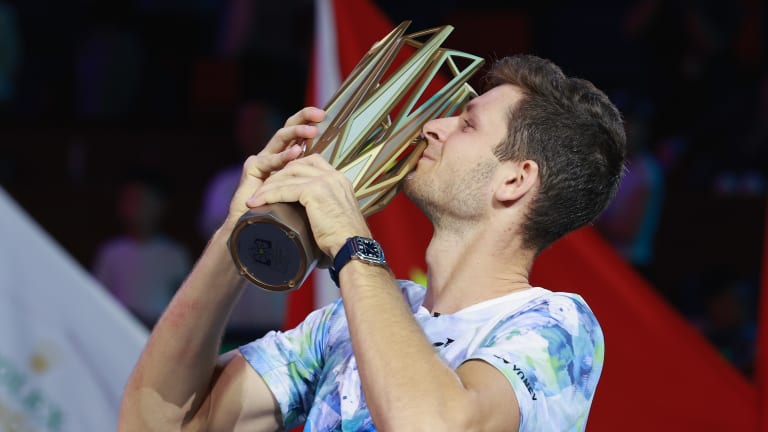Weekend Winners
Different pressures, similar triumphs for Hubert Hurkacz, Zheng Qinwen in Shanghai and Zhengzhou
By Oct 15, 2023Weekend Winners
Sabalenka, Medvedev, Swiatek, Bencic, Bublik: Who had the most significant win of week one?
By Jan 11, 2026Weekend Winners
Joao Fonseca and Jannik Sinner played their best when it counted in Basel and Vienna
By Oct 26, 2025Weekend Winners
Coco Gauff again treated Asia like a practice session—and again left with a big title, in Wuhan
By Oct 12, 2025Weekend Winners
“We’re working on new things,” Jannik Sinner says after Beijing triumph
By Oct 01, 2025Weekend Winners
Carlos Alcaraz says 2025 is his "best season so far without a doubt" after winning in Tokyo
By Sep 30, 2025Weekend Winners
Clutch play wins team comps for Jasmine Paolini, Taylor Fritz; Iga Swiatek shines in Seoul
By Sep 22, 2025Weekend Winners
Teen queens crowned: Iva Jovic, Tiantsoa Rakotomanga Rajaonah claim first WTA titles
By Sep 15, 2025Weekend Winners
How Carlos Alcaraz put a 'difficult month' behind him with his first Monte Carlo title
By Apr 13, 2025Weekend Winners
With clay titles, Jenson Brooksby and Jessica Pegula made 2025 all the more promising
By Apr 07, 2025Different pressures, similar triumphs for Hubert Hurkacz, Zheng Qinwen in Shanghai and Zhengzhou
Hurkacz won a throwback serve-fest over Andrey Rublev in Shanghai, while Zheng learned to deal with home-court pressure on the fly in Zhengzhou.
Published Oct 15, 2023
Advertising

Hurkacz won his second ATP Masters 1000 title, adding to the Miami crown he won in 2021.
© Getty Images